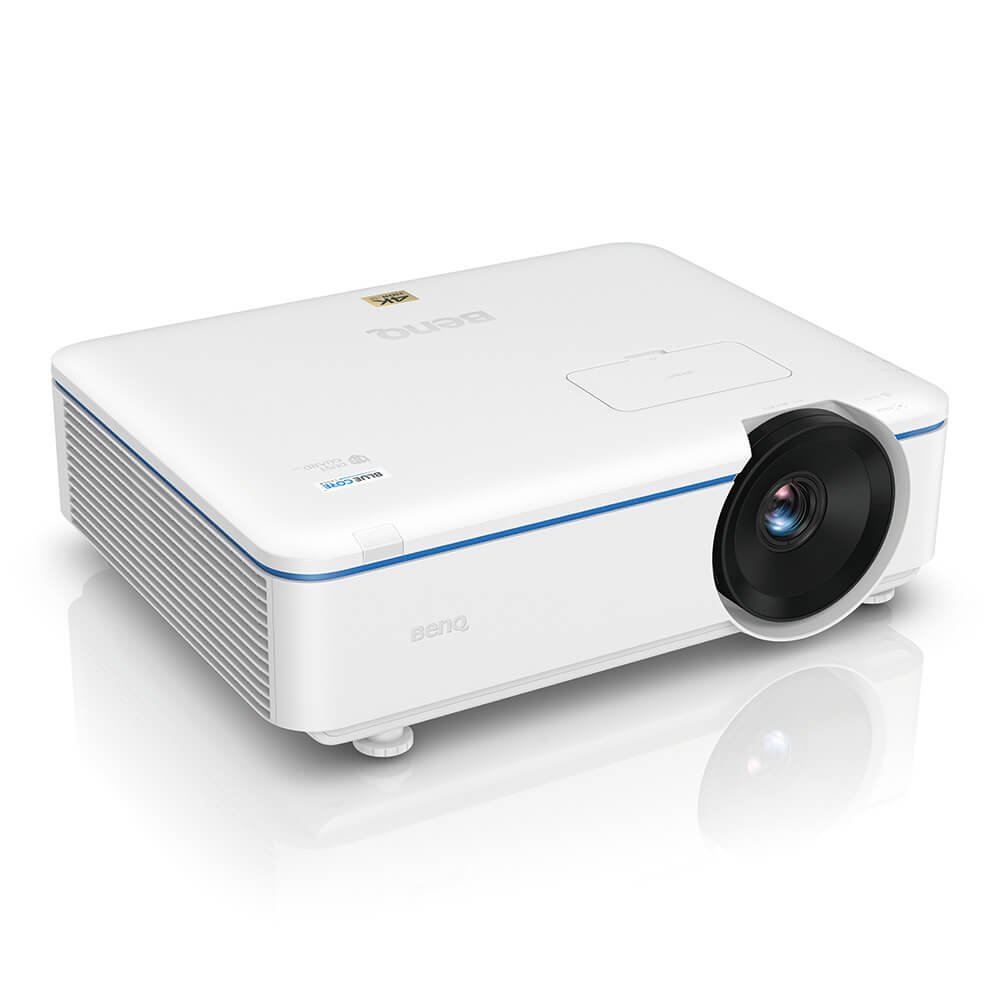What are the best alternatives to the new Sony laser projectors?
- BenQ
- 2020-06-12
In early 2020, Sony announced a new line of laser projectors that offers great pictures and of course, the prestigious Sony brand name. But if you are looking for a projector that uses the latest laser light technology to lower your overall cost of ownership and improve the image quality, you quickly realize there are a lot of alternative projectors available from other brands. So what should you be looking for when evaluating the best alternatives to compare with the new Sony laser projectors? Here are four key factors to consider:
For a fair comparison, we will use the popular 5000 lumen Sony VPL-PHZ12 laser projector against two other top-selling 5000 lumen models from BenQ. According to Futuresource, BenQ is the leading projector brand in the world using DLP technology, while Sony is a leading brand using the traditional three panel LCD architecture. They both generate very bright images, have 20,000-hour laser life, can be controlled via the network, and have optical lens shift. Both projector brands are used in thousands of rooms around the world and have won numerous awards. Here are the key differences you may want to consider:
Most laser projectors are designed to display their image on a large screen – typically 100 inches or larger. These 5000 lumen projectors will generate bright images – but as the screen size becomes larger, resolution becomes more important to ensure a quality image. Both the Sony VPL-PHZ12 and the BenQ LU950 have WUXGA resolution with 2.3 million pixels, but the BenQ LK952 5000 lumen laser projector has true 4K resolution with 8.3 million pixels for under $5000. Sony also has true 4K resolution projectors, but they are more expensive for the higher brightness models. For a house of worship, public display, or museum applications, the difference between a 2.3 and 8.3 million pixels being displayed on a 150-inch screen is remarkable.
5000 lumen projectors are often used in public spaces and rack up a lot of hours over the years, so all BenQ laser projectors use Texas Instruments DLP chips which are rated for 100,000 hours of use. This is the same technology currently used in most digital cinemas, and every IMAX movie theater due to its ability to maintain a high-quality image over time. The main advantage of DLP technology in a 5000 lumen projector is that the projector will never turn yellow over time – ensuring your investment will last not only through the warranty period but for many years afterward. For their digital cinema projectors, Sony uses SXRD technology, but for the VPL-PHZ12 projector, Sony uses three Sony LCD panels on this design.
While dust can be a problem with traditional lamp projectors, for laser projectors dust can be a major issue. When a laser beam strikes a dust particle inside the projector, it can turn it into superheated “molten goo” that can land on a critical component. BenQ and Sony take two different approaches to solve this. The BenQ models use a completely sealed laser engine design to keep the dust out of the projector. These models undergo a test inside a dust chamber that simulates over 20,000 hours of heavy dust exposure – and is then disassembled to ensure that there is no dust impacting the critical components of the projector. Smartwatches such as the Apple Watch go through the same testing. The Sony laser projector models use an open design with a traditional filter and do not certify the projector using standard IP5X dust contamination tests. The projector will provide warning messages when the filters need cleaning and have detailed instructions on how to clean or change the filter in the maintenance section of their manuals.

BenQ LK952 True 4K UHD Sealed Laser Projector
Projectors used to display artwork, logos, and photographs need to have accurate color. Both Sony and BenQ produce highly color accurate monitors used by the world’s best professional photographers. Modern laser projectors can now deliver higher color accuracy than many lamp-based high brightness models, and BenQ provides the exact specification of their color accuracy against accepted industry standard specifications such as Rec.709. Both the BenQ LU950 and the LK952 deliver 92% or higher color accuracy against this specification – ensuring that the color is right both on subtle skin tones and multicolored logo’s.
While the Sony brand is well known in North America, according to Futuresource, in 2019 BenQ sold more projectors than Sony in the US and Canada. BenQ is also a market leader in North America for both corporate and education interactive flat panels, and recently launched the first color-accurate digital signage panel that was certified by Pantone. Bottom line – both companies produce excellent displays and are solid choices for 5000 lumen high brightness projectors.
For customers looking for advice on choosing the right projector for their business, you can talk directly to an experienced BenQ product expert who has access to over 70 different projector models and can guide you to the best one for your application. We also can help you find a reseller nearby, or if you want, you can purchase one right on the phone. You can reach them at 888-818-5888. If you want to email them instead, you can reach them at BenqB2B.BQA@Benq.com